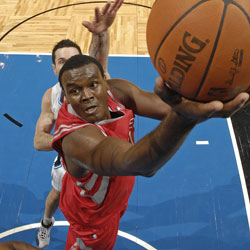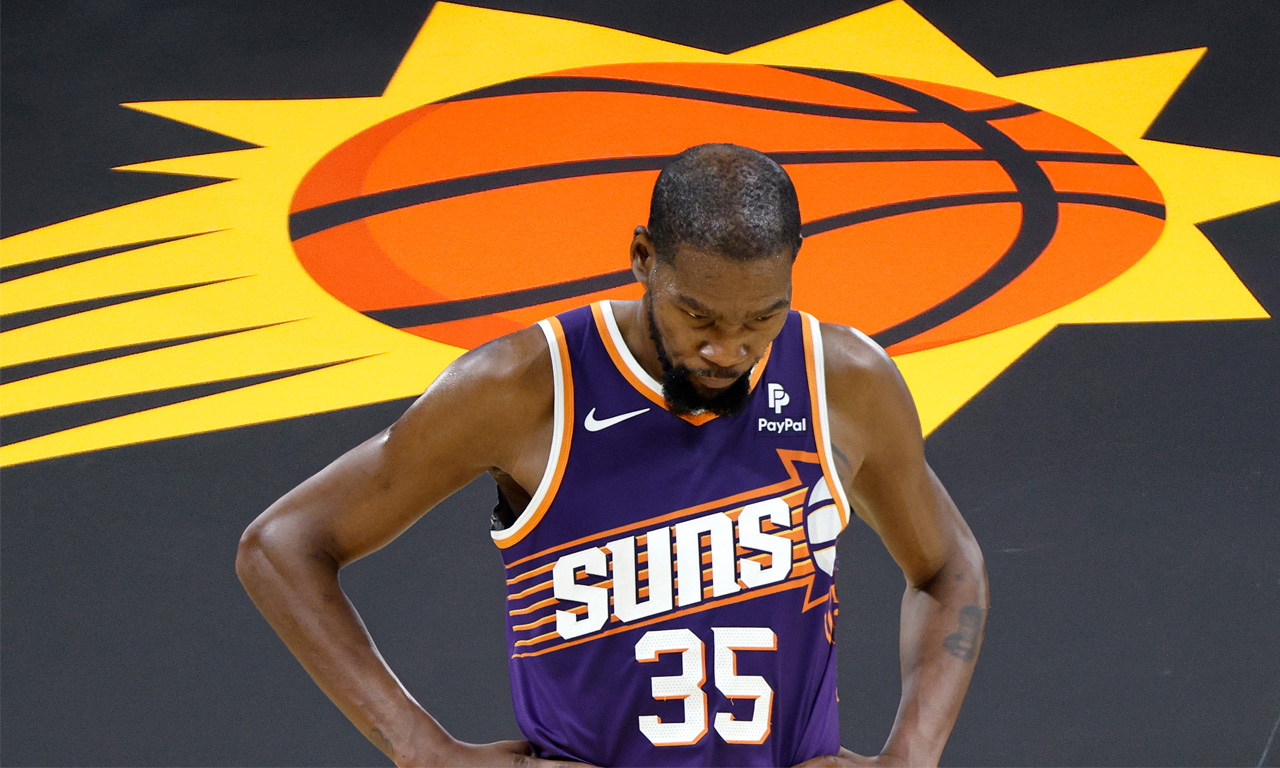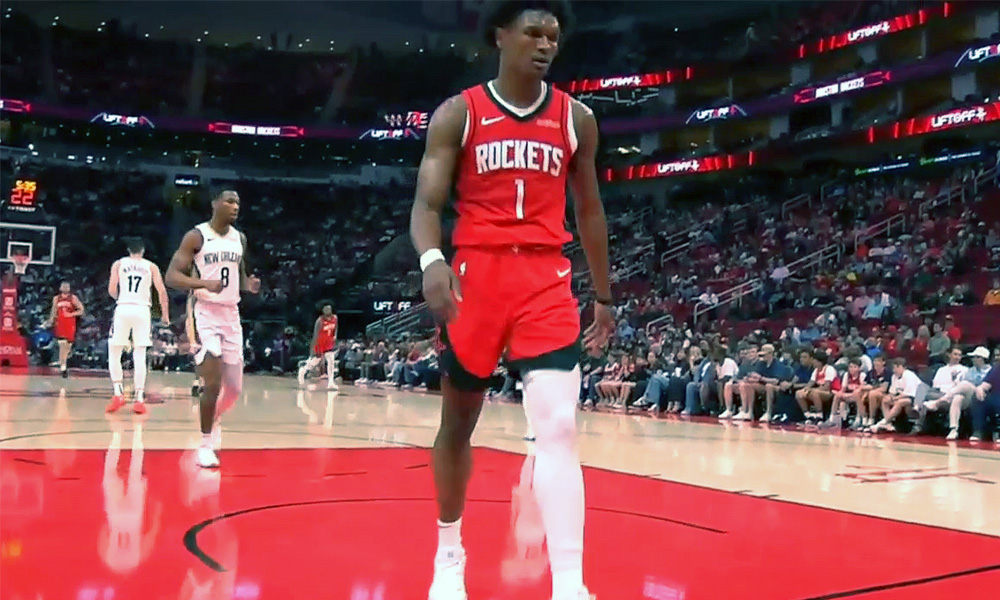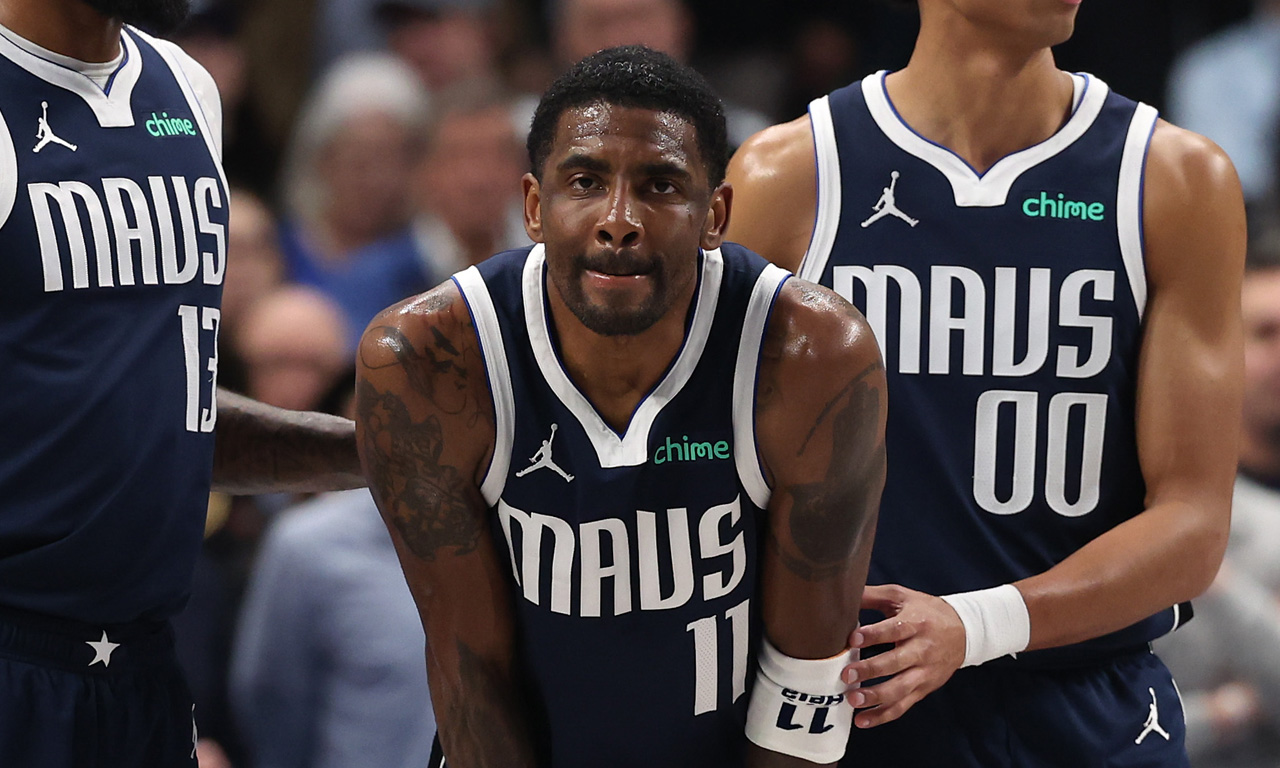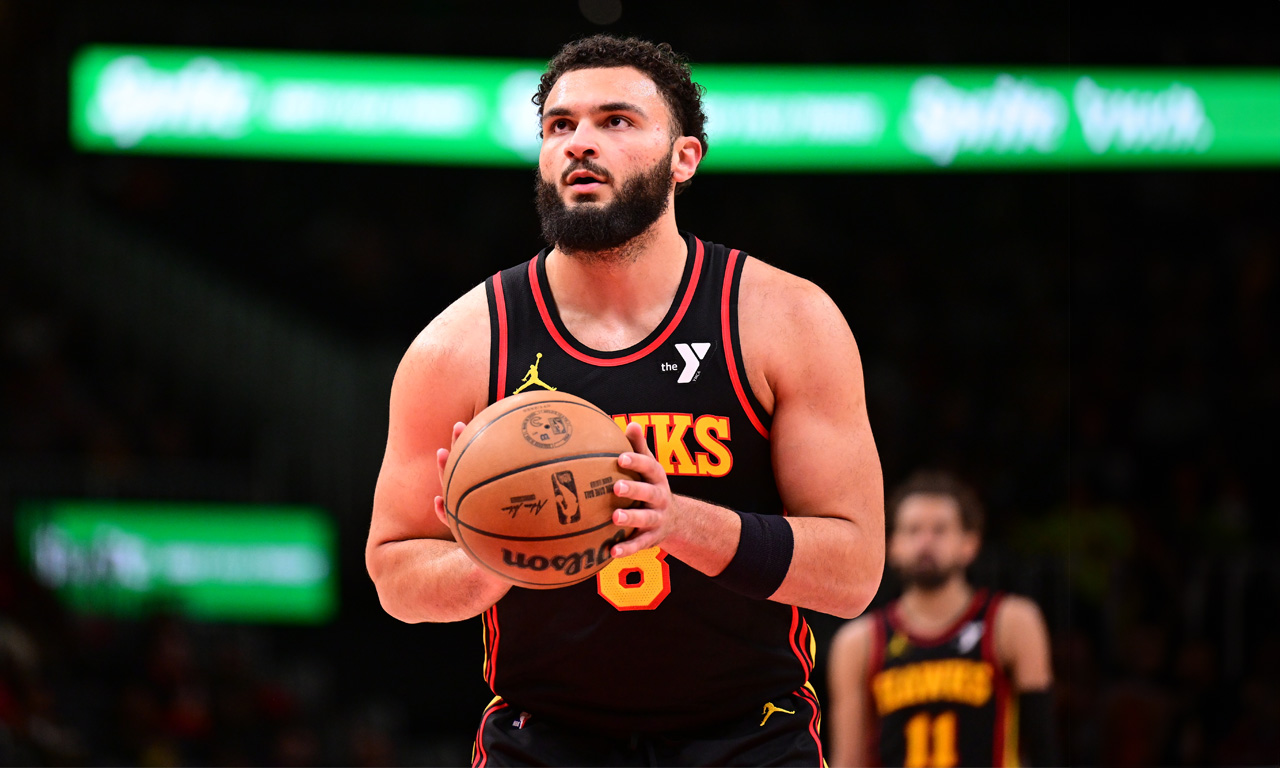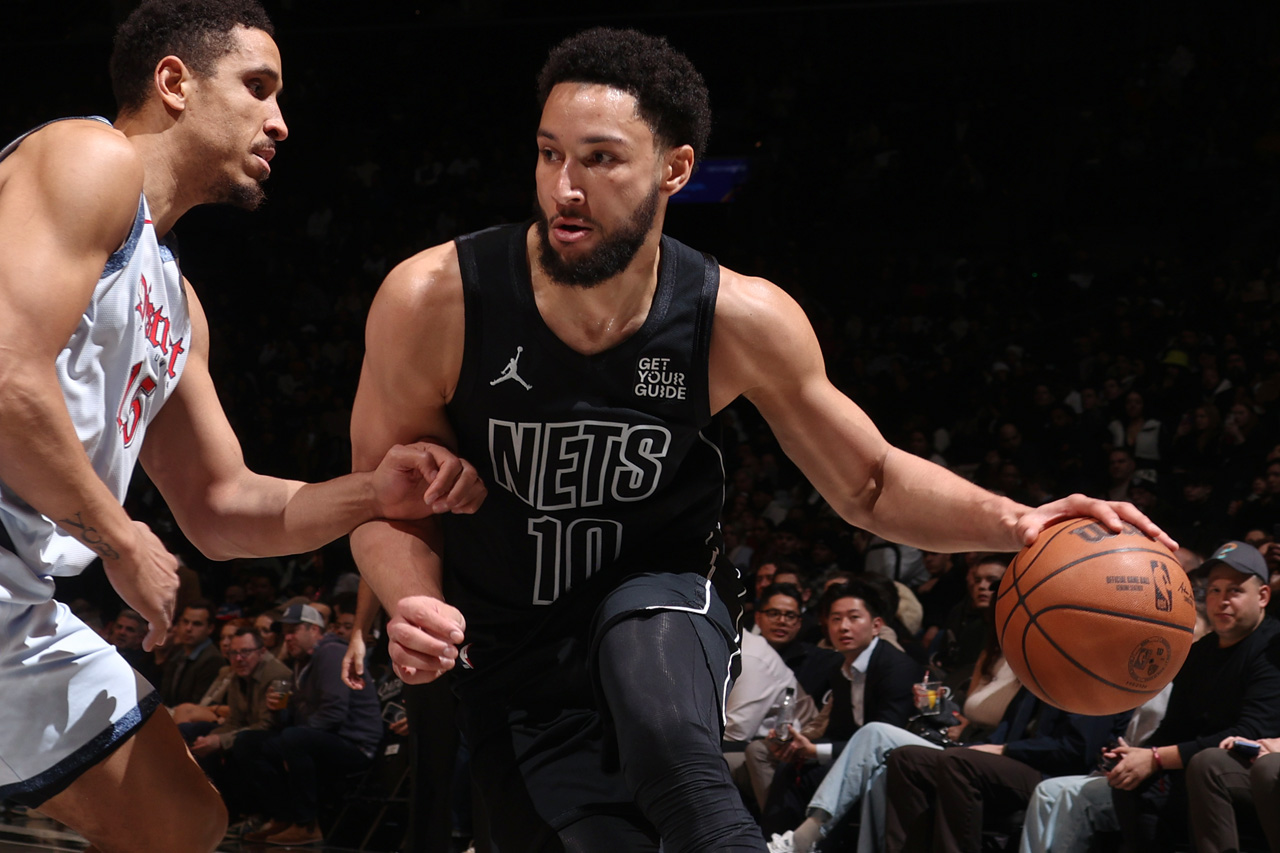As the Houston Rockets set to host the Phoenix Suns tonight, it seems the right time to take a look back at the trade that linked these two franchises together for the foreseeable future.
This past June, the Rockets made a trade with Brooklyn that sent back to the Nets control of their 2025 and 2026 unprotected first-round picks. In exchange, the Rockets received a large chunk of Phoenix’s future (2025, 2027, 2029) and control of the Dallas Mavericks’ 2029 first.
In essence, the Rockets traded one pick and one swap for two picks and two swaps. All unprotected.
If I’m going to discuss the current outlook of this trade, I have to be honest about how I saw it at the time of the move. While I didn’t hate this trade initially, I definitely didn’t love it either.
I liked that the Rockets increased their overall trade assets. I also liked that they extended the timeline to be able to make a bigger trade and I also appreciated that they kept control of the 2027 Brooklyn swap.
But I didn’t like that the Rockets gave up what seemed like the more established value (Brooklyn) for a more uncertain gamble (Phoenix). The Rockets did not control a “tanking runway” of picks to offer back to Phoenix — all of the picks Houston got in the deal were in staggered years (’25, ’27, ’29). I also felt Brooklyn, who badly needed to rebuild, got away with paying market value to get their picks back despite the fact that the Rockets invested years in watching those picks appreciate up to the point that they had the Nets completely over a barrel.
Net-net: I felt like more certainty was traded for less certainty and it was more of an equitable trade for both teams rather than Brooklyn paying dearly to get back the things only the Rockets could offer.
There were two ways I thought this trade could pay dividends: The Suns needed to flame out immediately, as in this season (unlikely), or the Rockets could trade all those pick assets as part of a deal for a real superstar in the next 12-18 months (more likely).
In a testament to how quickly change can occur in a very unpredictable NBA, four things have happened that have been positive indicators for the Rockets in making this move.
While Phoenix had major salary cap issues, dealing with the second apron, they didn’t appear to have problems on the court. They jumped out of the gate 8-1 and looked like a legitimate contender behind their star trio of scorers in Kevin Durant, Devin Booker and Bradley Beal.
Given Houston controlled Phoenix’s pick this year via a swap, it looked like the Rockets would come up empty-handed on the trade this season.
That changed quickly.
Injuries, serious depth concerns and a lack of a defensive identity has sent Phoenix spiraling. Booker’s availability has been inconsistent, forcing Durant to carry the load, while Beal has not quite fit in at all. Their financial limitations, thanks to owner Mat Ishbia’s all-in spending spree, have handcuffed their ability to improve the roster around the three stars.
The Suns are sitting 11th in the West, having gone 22-34 since that hot start, and are currently trying to catch a depleted Dallas squad to get back into the play-in picture.
As of right now, the Rockets project to end up with a lottery pick (albeit a late one) this season out of the trade.
Because the Suns struggled so hard after the start, they tried to make a major move at the deadline but could not unload Beal, in large part due to his no-trade clause.
As a result, they may have made a misstep: They openly tried to trade Durant, which inevitably became public news.
Now? Durant will almost assuredly be traded this summer — likely to a destination that he handpicks. This means the Phoenix Suns will have to look at all possibilities for their future, including potentially having to give Rafael Stone and the Rockets front office a call.
But keep in mind, the Rockets can not offer Phoenix the ability to completely rebuild via the draft right now. Phoenix’s 2026 pick is controlled by Washington. They would have to get extremely creative to set that stage. A retool in Phoenix is much more likely.
This one is tougher to gauge.
The Brooklyn Nets are currently tied for fifth-worst team in the league, giving them strong lottery odds this summer. This was expected. After all, the Nets, even with a healthy Mikal Bridges and a full roster, were not a good team last season, closing the year 20-41 in the final three quarters of the season. The Rockets ended up with the #3 pick (Reed Sheppard) as a result of Brooklyn’s mediocrity.
However, if the Rockets had not placed that pick back in Brooklyn’s hands, would the Nets be better than this?
Brooklyn brought in a new coach in Jordi Fernandez that has had a positive impact. They have dumped off players, such as Dennis Schroeder and Dorian Finney-Smith, that impacted winning. The bar to make the play-in in the East (.415 winning percentage) is obscenely low, with Brooklyn being just five wins away from it at the moment.
And on top of that, Brooklyn did have lots of draft capital that they could have moved to try to win now.
It’s very tough to say as you don’t know if a team with Bridges still in Brooklyn might have actually been worse than this current squad, but you could make a case that the pick the Rockets would have ended up with from Brooklyn this season would be eerily similar to the one they will end up getting from Phoenix this year.
Again, this is a tough call.
As part of the trade, the Rockets got control of the Dallas Mavericks’ 2029 first-round pick (unprotected, of course). While there’s really no way of knowing what a pick will be five years out, we did know that Luka Doncic would be just 29-30 years old that season and it was fairly etched in stone that he would be the core piece of a Dallas squad that season.
Enter chaos in Dallas.
Doncic was shipped out in the trade that shocked the world, which could have a major impact on the Rockets. Dallas’ current core of Kyrie Irving and Anthony Davis will be 37 and 36 years old that season, respectively.
On paper, the value of that pick shot up.
Right now, the outlook on these picks looks strong. One source stated off the record that they feel the 2029 Phoenix pick is the best pick asset out there that is owned by another team. The Rockets would be reluctant to add that one specifically into any trade unless it’s for a truly legitimate star.
But if there is any lesson that the NBA teaches us over and over again, it’s that it’s very hard to predict where a team will be a year from now, much less three years from now.
Can the Rockets pressure Phoenix and leverage the ownership they have of their draft capital to get what they really want (Booker) from them? Could a Suns retool around Booker and Beal, with the right pieces and assets acquired from a Durant trade, significantly change their on-court outlook and cap sheet — which in turn could damage the value of the picks Houston controls?
Bottom line is it has worked out well this season, and the future forecast at the moment is promising. The current value of those future picks appears strong. What will likely determine history’s final grade for this trade will be how it sets them up for the trade to come, and that’s where fans will be looking to Stone and the front office for action starting this summer.

